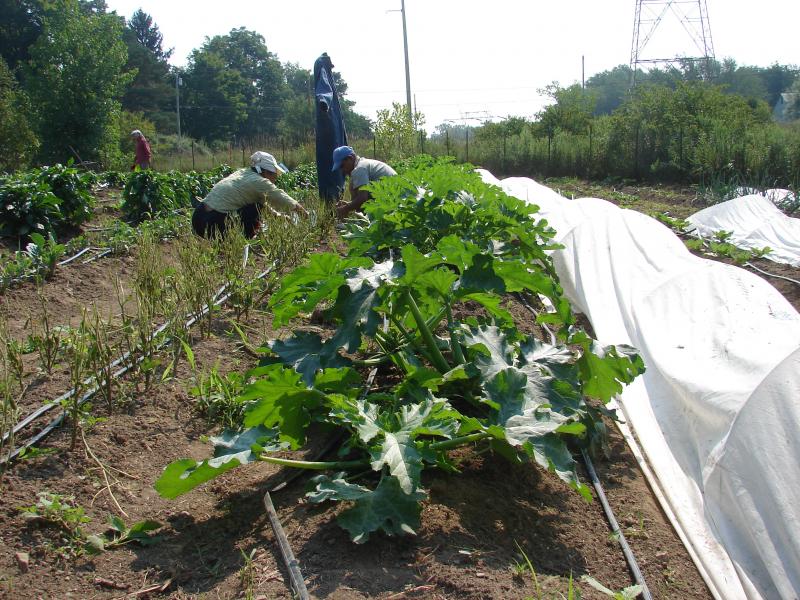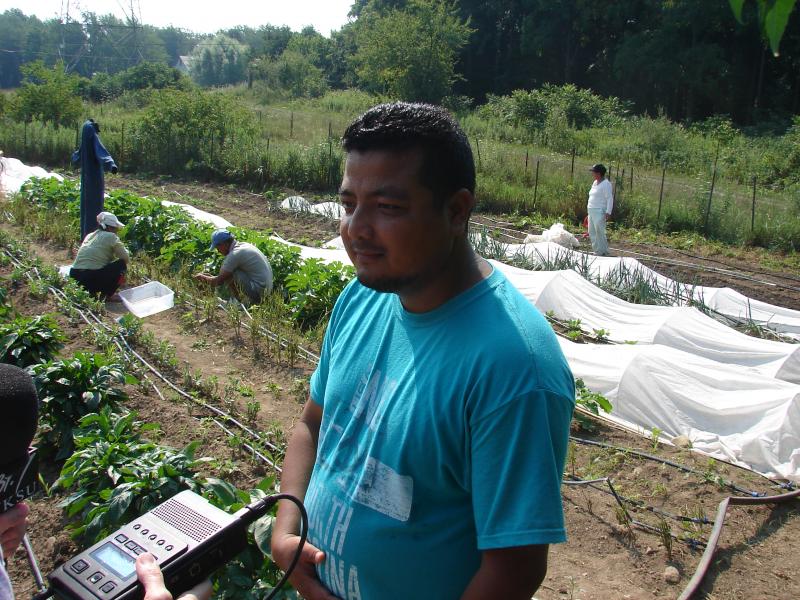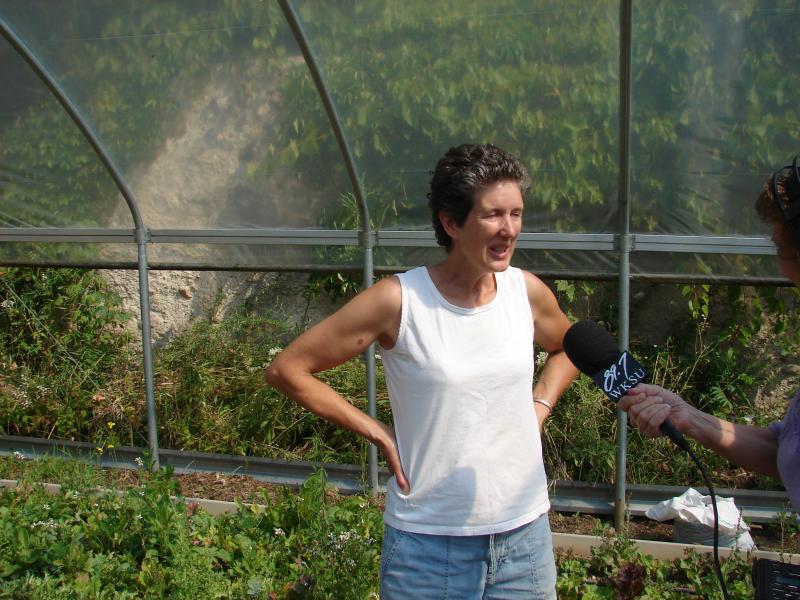Charlie Parker is a program assistant for ASIA, Asian Services in Action, a refugee agency with offices in Cleveland and Akron. 
A few months ago he started packing his van full of refugees from Bhutan, Nepal, and Myanmar and driving them to the Schmidt Family Farm in Medina.
He says most are political and religious refugees newly arrived in this country, after many years in detention camps overseas. He says they get financial assistance for the first 6 months, but then they have to find jobs.
"And that's where ASIA came into play. The farming initiative here, they get paid a salary. On top of learning they are being able to provide for their families. They are making above minimum wage.
When the produce is sold they get a certain percentage of the proceeds. " And on top of that what's left over they bring to their family."
Good work and good food
They seem to take to the work eagerly.
But Parker has to speak for most of them because they are still learning English. Most come from Nepal, Myanmar and Bhutan.
 Nar Pradhan is originally from Bhutan. He arrived in Cleveland 3 years ago after 17 years in a refugee camp in Nepal. He’d never farmed before but he learned quickly. Nar Pradhan is originally from Bhutan. He arrived in Cleveland 3 years ago after 17 years in a refugee camp in Nepal. He’d never farmed before but he learned quickly.
"We are very much dedicated and like everybody's happy and I'm enjoying too.”
They are growing 43 different kinds of vegetables including gay choy or Asian greens , Asian beans, hot peppers, bitter melon, Korean melon, beets, and pumpkins.
But Charlie Parker points out they don’t eat the pulp of the pumpkin.
" Certain Asian communities they prefer eating the vines, the leaves, and the shoots.”
That often goes into soup, stir-fries, or curry, with potatoes, garlic, cumin powder, and chili pepper.
A taste of home
Back in Nepal, Nar enjoyed a special dish that he’s now able to cook here.
“ Actually one of the national curries of Nepal we call Gundrook, we missed over here. So now we grow our Asian greens over here, gay choy, gay lam, so from that we make our national curry, Gundrook. We squeeze it and we can put in an airtight container and keep it for 15 days. Dry it under the sun. It's amazing. It's lovely soup.”
They’re starting some Russian kale and we spot some butterhead lettuce popping up in the greenhouse, but Nar and Parker say most of the certified organic seedlings are strictly Asian.
"Mung cilantro. This one is Komatsuna. It's Japanese spinach. It actually has some spicy zest to it. You can either eat it raw or add it to salad but we prefer to stir-fry or saute it.”
Healthy options
Komatsuma has a lot of vitamin C, more than western spinach. They also grow Chinese spinach, also known as white leaf amaranth. It’s technically a weed, but it has more iron and calcium than its western counterpart.
Weeds, are a touchy subject here, as Charlie Parker once discovered.
"I came here and I started weeding and they started chewing me out because they told me those weren't weeds. Those are our vegetables. What a lot of westerners would think is a weed is actually a delicacy overseas. Here Amaranth is considered a weed but in Nepal it's a delicacy. It's got a spicy , tangy taste to it."
 Parker was born in the Phillipines . His wife is from Hong Kong. He says he can relate to the refugees. Parker was born in the Phillipines . His wife is from Hong Kong. He says he can relate to the refugees.
" They come here not having anything not knowing what to do they feel kind of lost .
And being of Asian descent I feel like it's our responsibility to help them out. They are less fortunate and we are in a position to better their lives."
 Susan Schmidt feels the same way . That’s why she makes room on her farm for the Asian farmers . And she credits her 16 year old daughter for introducing her to them. Susan Schmidt feels the same way . That’s why she makes room on her farm for the Asian farmers . And she credits her 16 year old daughter for introducing her to them.
" She's the child of the farmers' market. We've been doing this since she was 8 years old. And when she saw their stand she was looking for people to practice Mandarin with, and that's how the connection was made and why Asian Services is here."
The Asian farmers sell their produce at five area markets: in Peninsula, at Cleveland State, the Cleveland Clinic , Shaker Square and Lakewood. |